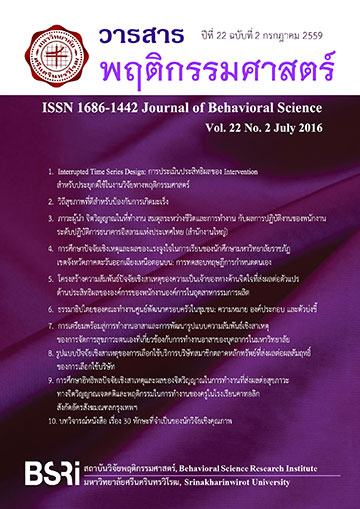A Study of Antecedents and Consequences of Academic Motivation of Rajabhat University Students in Upper Northeastern Provinces: A Testing of Self-Determination Theory
Abstract
The main purposes of this study were 1) to test a causal relationship model of academic motivation and 2) to compare differences structural equation model between 2 groups of university students. The sample was 1,049 undergraduate students, enrolled in Human Behavior and Self-Development course, in upper northeastern provinces. The samples were selected by purposive sampling. Perceived basic psychological needs (perceived autonomy, perceived competence, and perceived relatedness) were modeled as antecedents of self-determined academic motivation, and academic effort and academic relaxation were modeled as consequences. The finding revealed that the hypothesized structural equation model was adjusted in harmony with the fitted empirical data (x2 = 1060.756, df = 381, p = .000, RMR = .060, RMSEA = .030, GFI = .944, NFI = .938, CFI = .959, AGFI = .944, x2/df = 2.784) perceived basic psychological needs indirectly affected academic effort and academic relaxation with a mediation of academic motivation. All of perceived basic psychological need variables could account for 77 percent of variance in academic motivation, 26 percent of variance in academic effort and 39 percent of variance in academic relaxation. There were no difference on structural models between Loei Rajabhat University students and Udon Thani Rajabhat University students.
Keywords: Academic motivation, Basic psychological needs, Effort, Relaxation, University students, Self-determination
Downloads
Published
How to Cite
Issue
Section
License
Behavioral Science Research Institute, SWU
114 Sukhumvit 23, Bangkok 10110, Thailand.
Tel.02-649-5000 # 17600


